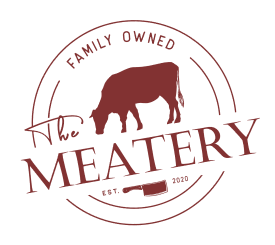Sourcing and Origin from Australia
Australian Wagyu beef represents a pinnacle of culinary achievement, with its history rooted in strategic agricultural innovation. Beginning in the 1990s with the importation of Wagyu genetics from Japan, Australia's ambition was clear: to produce beef capable of competing globally in the luxury meat market.
Australia’s vast landscapes, ranging from lush, temperate pastures in Tasmania and Victoria to expansive rangelands in Queensland and New South Wales, offer ideal conditions for Wagyu cattle. These varied climates allow regional Wagyu herds to develop distinct flavor profiles, enhancing Australia's reputation for unique terroir-driven beef.
The Australian Wagyu Association (AWA), responsible for maintaining genetic integrity through DNA tracking and certification, ensures that each registered Wagyu animal traces its lineage back to authentic Japanese ancestors. This meticulous attention to detail supports Australia's global reputation for premium quality Wagyu.
Australian producers uniquely integrate traditional Japanese husbandry with modern farming practices. Ethical animal welfare, sustainable grazing systems, and advanced nutritional programs set Australian Wagyu apart, with quality often surpassing industry standards.
Today, Australia boasts approximately 360,000 Wagyu-influenced cattle, making it the largest producer of Wagyu beef outside Japan. Australian Wagyu has earned a worldwide reputation for exceptional quality, ethical production practices, and distinct, sophisticated flavors, appealing to culinary enthusiasts and professionals alike.
Breed Differences and Culinary Applications
Within Australia's Wagyu industry, two breed classifications cater to diverse culinary needs:
Fullblood Wagyu
These cattle are purely Wagyu, descended exclusively from Japanese bloodlines. Fullblood Wagyu offers the richest marbling and the most authentic Wagyu experience, making it highly coveted by gourmet restaurants and luxury markets. The Meatery has plenty of Fullblood Australian Wagyu options, from the delicious Denver Cut to the highly praised New York Strip!
Purebred Wagyu
At least 93.75% Wagyu, these cattle retain strong Wagyu characteristics but include minor genetics from breeds like Angus. They offer exceptional marbling balanced with hybrid vigor, making them versatile in various culinary contexts. If you are looking for an incredible flavor profile, the Australian Wagyu Picanha steak should be your go-to option!
Understanding Marbling and Australian Wagyu Quality Grades
Marbling, the intricate distribution of intramuscular fat, defines Australian Wagyu’s signature buttery texture and rich flavor. Australian Wagyu uses the AUS-MEAT Marble Score (0 to 9+), objectively assessing marbling density and quality.
Additional quality factors include:
-
Meat Color: Bright, cherry-red indicates optimal freshness and aging.
-
Fat Color: Premium Wagyu features white to cream-colored fat.
-
Firmness and Texture: Ideal Wagyu maintains firmness yet provides a delicate, silky texture.
The highest grades (7-9+) represent exceptional quality and typically find their way to top-tier restaurants and specialty markets. Even mid-range Australian Wagyu surpasses conventional beef in marbling and flavor, providing consistently premium experiences across all grades.
What Makes Australian Wagyu Special?
Australian Wagyu uniquely combines Japanese genetics with innovative Australian agricultural practices, achieving a product celebrated globally for sustainability and superior flavor.
Ethical and Sustainable Practices
Australian producers prioritize animal welfare and sustainable grazing, enhancing the beef's flavor complexity through natural farming methods. Rotational grazing not only supports environmental sustainability but also allows cattle to thrive naturally, enhancing meat quality.
Distinctive Flavor Profiles
While retaining classic Wagyu richness, Australian Wagyu often features a more robust, savory beef flavor, attributable to Australia's diverse pastures and grass-feeding practices during cattle development stages.
Traceability and Transparency
Advanced digital systems, including blockchain, provide transparency from farm to fork, ensuring authenticity and quality, bolstering consumer trust in Australian Wagyu.
Consistency in Quality
Sophisticated breeding programs and nutrition management contribute to the reliable excellence of Australian Wagyu, making it a trusted choice for chefs worldwide.
Australian Wagyu Differentiation
Australian Wagyu strategically differentiates itself by balancing authentic Wagyu characteristics with diverse feeding and production methods:
-
Grass-fed to Grain-finished: Balances natural development with marbling enhancement.
-
Short-fed and Long-fed Programs: Cater to varying consumer preferences in marbling and flavor.
-
Entirely Grass-fed Options: Produce distinctive flavors valued by niche markets.
This flexible production model allows Australian Wagyu to cater to diverse culinary preferences and market demands.
Australian Wagyu vs. Japanese Wagyu
Comparing Australian Wagyu and Japanese Wagyu reveals complementary rather than competitive relationships. Japanese Wagyu, famous for its extreme marbling and sweetness, excels in traditional Japanese preparations like shabu-shabu. In contrast, Australian Wagyu offers more robust beef flavors and versatility, suited to grilling, roasting, and international cuisines.
Australian Wagyu is typically more accessible financially, priced attractively for luxury dining without exclusivity constraints, allowing wider culinary exploration.
Which is Better: Japanese Wagyu or Australian Wagyu?
Rather than a straightforward comparison, each Wagyu type serves unique culinary niches:
-
Japanese Wagyu offers a luxurious, highly specialized dining experience focused on marbling and tenderness.
-
Australian Wagyu provides everyday luxury with balanced marbling and greater culinary versatility, suitable for a wider variety of dishes and cooking techniques.
Sustainability also favors Australian production due to the expansive grazing lands and environmentally mindful practices, appealing strongly to eco-conscious consumers.
Australian Wagyu vs. Conventional Beef: Understanding the Difference
Australian Wagyu significantly differs from conventional beef in biological composition, nutritional profile, and culinary performance:
-
Biological and Nutritional Differences: Higher unsaturated fats, omega-3 fatty acids, and glutamic acid, resulting in exceptional tenderness and flavor.
-
Cooking and Culinary Benefits: Lower melting points allow for self-basting during cooking, ensuring consistently juicy and flavorful outcomes.
-
Experiential Dining: Wagyu transforms meals into extraordinary culinary events, justifying its premium pricing and growing popularity.
Australian Wagyu consistently delivers memorable, luxury dining experiences distinct from everyday beef consumption.
Explore Premium Australian Wagyu at The Meatery
Discover the exceptional quality of Australian Wagyu beef. For chefs, gourmet cooks, or anyone seeking culinary excellence, explore our premium Australian Wagyu collection at The Meatery, and elevate your dining experience today.










